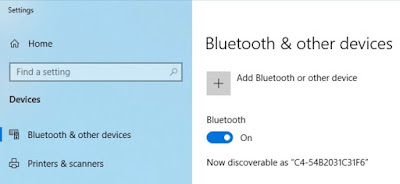SIP/H.323 Video endpoint vs. Native Zoom Room
While there are many approaches to providing high quality
video experiences this article is going to explore the differences between
using a standards-based codec approach compared to the native software-based
codec approach on the Zoom platform. My opinions expressed in this article are
solely mine. The Cloud Room Connector (CRC) from Zoom provides a gateway that enables
standards-based codecs to join a Zoom Meeting.
Below is a diagram of how the CRC gateway approach works from Zoom:
Traditional SIP/H.323 video endpoints offer interoperability and flexibility allowing customers to pivot between different
video strategies and platforms albeit on-prem video bridges from Poly, Cisco,
Pexip to VaaS platforms such as Zoom or BlueJeans. Many of these endpoints can register to more
than one platform or at least video dial into many platforms using a one button
to push (OBTP) experience.
The benefits of using a standard based codec include:
- Investment protection from video platform uncertainty
- Basic support for multiple video infrastructure and VaaS platforms
- Wide availability of room automation and integrations using control processors
- Occupancy based automation
At the same time SIP/H.323 video endpoints have many
considerations. Typically, the feature
set has a lower fidelity experience compared to native video software solutions. Let me explain, while Poly and Cisco have a high number of proprietary
features and functionality on their own platforms which include the RMX bridge
and CMS Bridge respectively, these endpoints do not have the same rich feature
set that is available from the Zoom platform running a native Zoom Room Solution provides. I equate it to using an open SIP
phone from Yealink or Poly on a Cisco CallManager. You get only a limited set of features also
known as Sip-19 compared to a Cisco Phone.
We can of course argue the merits of out of band features like paging
and multiple line registrations but none the less the feature set is limited compared
to a native Cisco phone that can take advantage of all the features of the
Cisco CallManager platform. Same is true with the Zoom Room software. Video solutions that depend on protocol level integration or gateways will only achieve basic functionality compared to the enhanced feature set of a system built purposely for the platform.
Zoom has also added One Touch Join capabilities for the Zoom Room platform through third party interoperability gateways provided by BlueJeans and WebEx CMR. Pexip and Poly RealConnect gateways provide one touch join capabilities into
Teams meetings [reference: ‘https://support.zoom.us/hc/en-us/articles/360001163206-Join-a-Third-Party-Meeting-from-a-Zoom-Room’]. Zoom, Microsoft and Cisco also recently announced direct third party join using built in WebRTC browser on each respective platform.
I advise my customers looking at Zoom or who have Zoom to leverage native solutions based on the Crestron Flex system as it comes with one year free of Crestron Xio Cloud which is a centralized and zero touch provisioning management service built on Azure IoT Hub. The merits of Xio Cloud will be discussed in an upcoming blog.
The benefits of going with the Zoom native experience
include:
- Enhanced feature set
- Fewer incompatibility issues
- In band management and monitoring tools
- User Interface consistency which mirrors the desktop and mobile clients
- PSTN voice integration without third party middle or infrastructure-ware
- Shorter development cycles
- Better long-term security
- Crestron API room automation control
- Native Digital Signage solutions
- Native scheduling panel software
Instead of listing thousands of features comparing standards-based
endpoints joining through a CRC connector I am going to spare you and provide
you the links to the Zoom Website that shows the features. You will notice a new category of appliances devices as well that are not PC based that show promise but they do not yet have feature parity with the
software-based codec applications running on a MAC or PC.
Zoom Room Features: https://support.zoom.us/hc/en-us/articles/360038970952-Zoom-Rooms-Features
Zoom Rooms Controller Features: https://support.zoom.us/hc/en-us/articles/115000542566-Zoom-Rooms-Controller-Features
New Updates for Cloud Room Connector (CRC): https://support.zoom.us/hc/en-us/articles/201361983-New-Updates-for-Cloud-Room-Connector-CRC-



Comments
Post a Comment